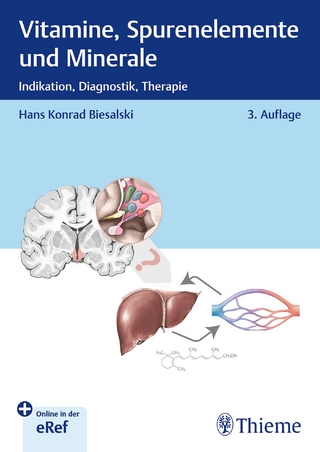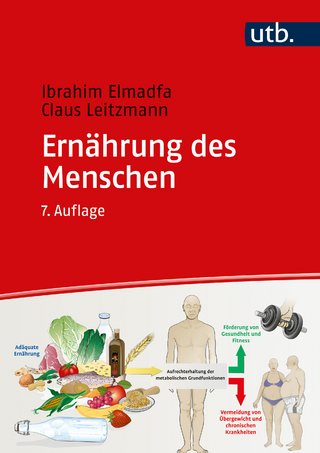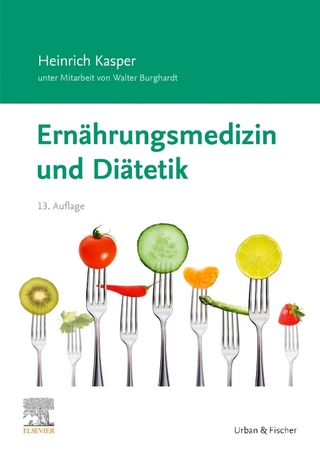
Phytonutrients and Neurological Disorders
Academic Press Inc (Verlag)
978-0-12-824467-8 (ISBN)
Prof. Dr. Haroon Khan has obtained the degree of B. Pharm (1999), M. Phil (2005), and PhD (2011) from the Department of Pharmacy, University of Peshawar. He started his career as a lecturer from the Gandhara College of Pharmacy, Gandhara University, Peshawar and currently, Professor of Pharmacy at the Department of Pharmacy, Abdul Wali Khan University Mardan, Pakistan. He has more than seventeen years of experience in pharmacy teaching, research and professional expertise in various fields of pharmaceutical sciences. Dr. Khan has 162 publications, including research, review, and editorial in various national and international reputable journals with considerable impact factor while several others are submitted or in the process of submission. His research focus is phytomedicines including phytopharmacological and phytochemical investigations of extracts/isolated compounds in collaboration with numerous national and international research groups. The scientific contribution of Dr. Khan has been acknowledged by the Pakistan Council for Science and Pakistan Council for Science and Technology (PCST) and awarded Research Productivity four times 2011-2014. He has also published three books with LAMBERT Academic publishers, Germany and four chapters. He is also the editorial board member of various international journals. Additionally, he is supervising many post-graduate scholars in various research projects. Dr. Aschner serves as the Harold and Muriel Block Chair in Molecular Pharmacology at Albert Einstein College of Medicine. He served on numerous toxicology panels (Institute of Medicine, US Environmental Protection Agency, Center for Disease Control), and is a member of the Neurotoxicology and Alcohol study section (NIH). Research in our lab focuses on the following topics: (1) Modulation of C. elegans genes (aat, skn-1, daf-16) that are homologous to mammalian regulators of MeHg uptake and cellular resistance will modify dopaminergic neurodegeneration in response to MeHg exposure. (2) Under conditions of MeHg-induced oxidative stress, Nrf2 (a master regulator of antioxidant responses) coordinates the upregulation of cytoprotective genes that combat MeHg-induced oxidative injury, and that genetic and biochemical changes that negatively impact upon Nrf2 function increase MeHg’s neurotoxicity. (3) PARK2, a strong PD genetic risk factor, alters neuronal vulnerability to modifiers of cellular Mn status, particularly at the level of mitochondrial dysfunction and oxidative stress. Our studies are designed to (1) shed novel mechanistic insight into metal-induced neurodegeneration; (2) identify targets for genetic or pharmacologic modulation of neurodegenerative disorders; (3) increase knowledge of the pathway involved in oxidative stress; (4) develop improved research models for human disease using knowledge of environmental sciences. Hamed Mirzaei is a Professor at the Research Center for Biochemistry and Nutrition in Metabolic Diseases, Kashan University of Medical Sciences, Iran.
Part A, Section 1: Bioactive compound classes and biosynthesis pathway
1. Current therapies for neurological disorders and their limitations
2. Biosynthesis of phytonutrients
3. Neuroprotective effects of flavonoids
4. Neuroprotective effects of glycosides
5. Neuroprotective effects of terpenoids
6. Neuroprotective effects of alkaloids
7. Neuroprotective effects of saponins
8. Neuroprotective effects of steroids
9. Neuroprotective effects of essential oils
10. Neuroprotective effects of phytonutrients at gene levels
Part A Section 2: General considerations
11. Latest development in quality control parameters/specification in phytonutrients studies
12. Phytonutrients standardization for effective therapeutic outcomes
13. Phytonutrients and technological development in formulations
Part B Sections: Toxicological considerations in phytonutrients
a. Adverse drug reactions
b. Toxicokinetics
c. Toxicodynamics
| Erscheinungsdatum | 10.07.2023 |
|---|---|
| Zusatzinfo | 40 illustrations (20 in full color); Illustrations |
| Verlagsort | San Diego |
| Sprache | englisch |
| Maße | 191 x 235 mm |
| Gewicht | 450 g |
| Themenwelt | Medizin / Pharmazie ► Gesundheitsfachberufe ► Diätassistenz / Ernährungsberatung |
| Medizin / Pharmazie ► Medizinische Fachgebiete ► Neurologie | |
| Medizin / Pharmazie ► Medizinische Fachgebiete ► Pharmakologie / Pharmakotherapie | |
| ISBN-10 | 0-12-824467-4 / 0128244674 |
| ISBN-13 | 978-0-12-824467-8 / 9780128244678 |
| Zustand | Neuware |
| Haben Sie eine Frage zum Produkt? |
aus dem Bereich


